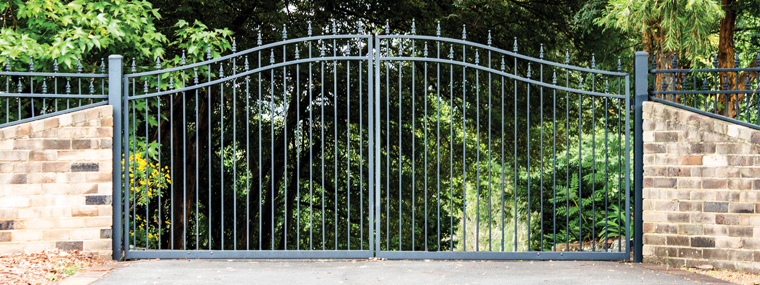
Steps to Plan and Prepare for Severe Storms
What should you do now to keep your community safe and secure?
By Brie Shouppe / Published March 2021

Extensive seasonal outlooks for the 2021 hurricane season are expected to be released soon. However, initial predictions from climatologists at Colorado State University say it is possible this will be another active year. In the Qualitative Discussion of Atlantic Basin Seasonal Hurricane Activity for 2021, released in December of 2020, two primary factors are analyzed to help forecast the upcoming storm season; both are related to the water temperature.
In the Pacific, the question is about the status of the El Niño-Southern Oscillation and when the conditions will trend to an El Niño pattern. Then in the Atlantic, Colorado State University is analyzing the Atlantic Multi-Decadal Oscillation cycle and what water temperatures are like in the North Atlantic. This discussion predicted five potential scenarios for the hurricane season, as well as the “climatological probability” for coastline states to be impacted. Of the 18 states listed, Florida (not surprisingly) is predicted to have the highest chance of being impacted by a hurricane.
As we await the detailed forecasts in Florida, we know that the upcoming months will bring strong storms, whether or not they are a part of a tropical storm or hurricane, to many areas. Before the season is here, property managers and board members can start to prepare their communities for the potential impacts. To adequately plan for the effects of a storm (brief or long-lasting) requires multiple steps and/or discussions by the association and management. These often take time, so let’s get started.
One of the first things you can do is assign responsibilities for securing the property. Who will lock up the guardhouse, clubhouse, or fitness center? If access control is installed, it is likely set to “fail open” in the event of a power outage, so additional measures should be in place to secure these locations beforehand. Will someone move the chairs and tables on the pool deck indoors? Designating specific duties to a person or staff member will help keep the neighborhood organized when it is time to properly secure all facilities and assets at the community.
If your community is gated, the metal gates and/or barrier arms are also likely to “fail open” when the power goes out. This setting is per Florida’s building code to ensure easy ingress and egress for residents and especially emergency personnel. However, when the threat of a severe storm is imminent, additional precautions should be taken with entrance and exit gates.
Swing gates and slide gates should be opened and secured, based on the recommendations from the manufacturer. Barrier arms are typically secured one of two ways. First, some should only be disengaged from their cradles, leaving wires attached, and then secured to fencing or gates if they’re close enough. If not, the arm can be tied to a stake in the ground. Other barrier arms can be removed from the cradle and stored in a safe location, such as a guardhouse or maintenance facility.
Once your gate system is locked open, it is advisable to turn off breakers that supply power to the equipment. This helps to protect your systems and prevent them from becoming dislodged by strong winds, which could cause further damage or injury. Please note, this is an important responsibility that should only be completed by trained staff, so it is crucial to know which staff or community members have the ability to do so.
Before a storm hits, community managers need to know if all security databases, footage, and important documents have a backup in place. Some items may be stored on a portable drive, or a cloud-based system can be used. Not only will this assist the association with accessing valuable information if important staff members cannot reach the community immediately after a storm, but remote, off-site backups also help with reinstituting access and monitoring systems as quickly as possible.
Communicate with your vendors about their plans for severe storms. If your association employs on-site or roving guards, you will need to know when the staff will no longer be at the community and when they can be expected to return (provided it is safe). For associations that employ virtual guards or remote monitoring services, ask about the company’s backup power, their communication plans, and contingency arrangements if their main location is damaged. Knowing their procedures ahead of time will help you coordinate with the association for on-site preparations, and you will understand their abilities to continue certain services and/or recover.
You will likely be communicating with many vendors over the course of our storm season, but do not forget to communicate with residents as well. Provide homeowners and tenants with helpful information about securing their individual properties or units, and let them know what your staff and board members are doing or discussing to ensure the community is safe. This means letting them know when/if gates will be opened and when facilities will be shut down. As busy as it may be after a storm, provide updates to the residents as well as you are able to.
While new reports will be released soon with advice and expectations for the upcoming season, we know from plenty of experience that severe storms, tropical storms, and hurricanes are always a bit unpredictable. We also understand and have seen the damage these storms can cause, though. Rather than becoming complacent or waiting until June is here, use this time to re-evaluate and refresh your community’s plans and processes for storms. Assign responsibilities among your staff or board, know how and when gates or other property will be secured, back up important information, and communicate as much as necessary with your vendors and residents. When your community is prepared, you and residents will have peace of mind, and you’ll be able to enact your plan in a strategic and organized manner.
Brie Shouppe
Manager of Business Development & Marketing, Envera Systems
Brie Shouppe is the Manager of Business Development & Marketing for Envera Systems. She works closely with the sales and marketing departments to provide best-in-class service to the communities that Envera works with. Envera Systems is an all-inclusive security provider that focuses on the unique needs of communities through technology-based solutions. Using Virtual Guards located at Envera’s operating center, Envera is able to provide Next Generation Security by verifying visitors, monitoring video, managing community databases, and more. Contact info: (855) 380-1274 or www.EnveraSystems.com.




